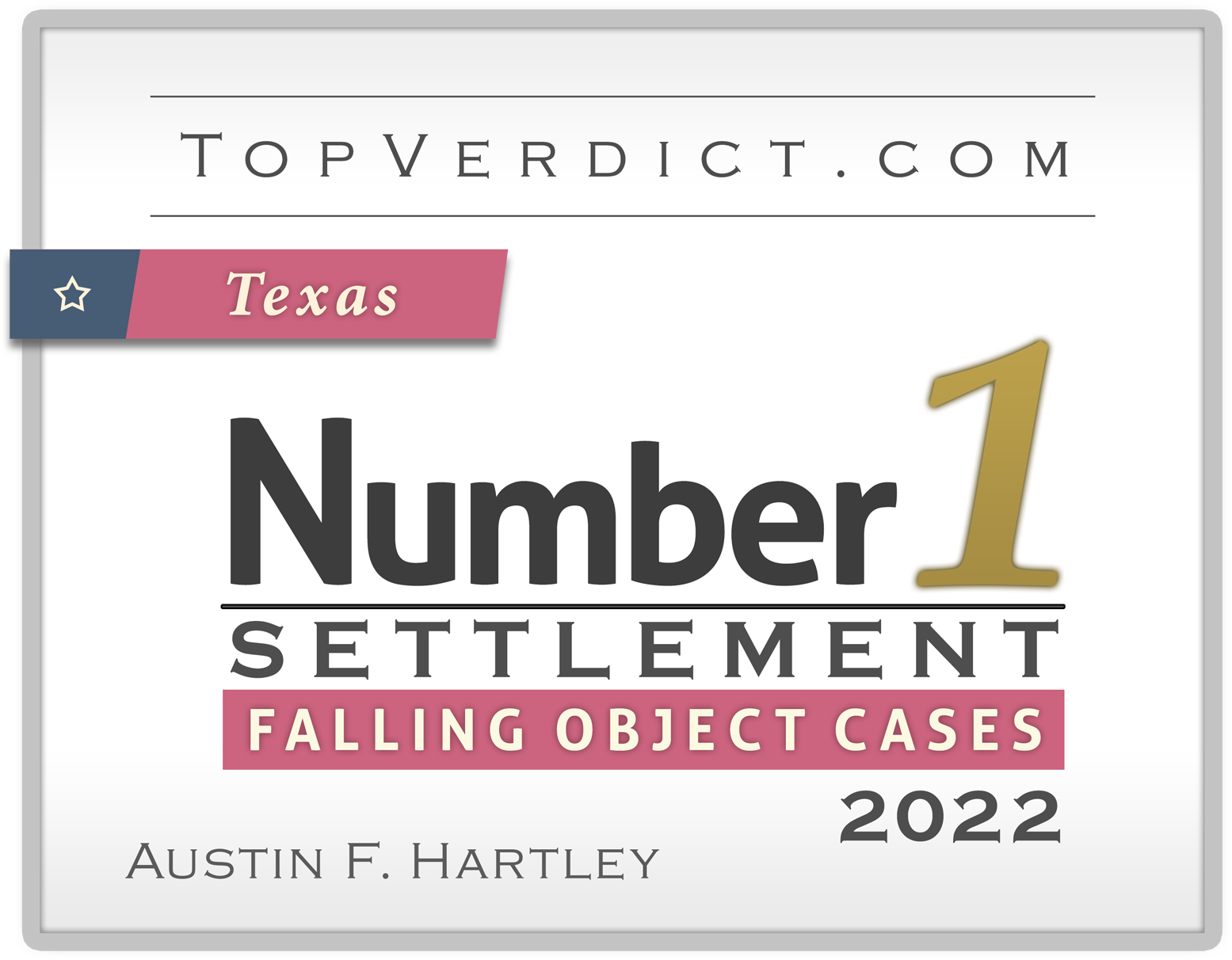Experienced Plano Truck Accident Attorneys Ready To Serve You
Truck accidents in Plano often leave victims facing serious injuries, long recovery periods, and mounting expenses. When the unexpected happens, having a skilled Plano truck accident lawyer by your side can make all the difference.
At Hartley Law, we bring years of experience handling complex truck accident cases with care, precision, and a commitment to justice. Every case receives a personalized legal strategy tailored to your unique situation with no upfront fees. Let our team fight for the accountability and financial recovery you deserve.
Why You Need a Plano Truck Accident Lawyer on Your Side
Truck accident cases are far more complex than typical car accidents. They often involve multiple liable parties, federal trucking regulations, and aggressive legal teams representing large trucking companies and their insurers.
This power imbalance can make it difficult for victims to secure fair compensation on their own. That’s why it’s critical to have a knowledgeable advocate in your corner. Hartley Law levels the playing field by offering free consultations and working on a contingency fee basis, meaning you don’t pay unless we win your case.
There is no rule that says you can’t speak with another party’s insurance company without first hiring an attorney. However, doing so is not advisable. The opposing party’s insurer does not have your best interests in mind. In fact, their goal is often to avoid liability on behalf of the truck driver or trucking company and get you to settle for as little as possible. Thus, the best way to protect your rights from the outset and help maximize your potential compensation is to work with a Plano truck accident lawyer who will fight for your rights on your behalf.
How is a Truck Accident More Complex than a Standard Car Accident?
Truck accidents often involve multiple parties beyond just the driver, such as the trucking company, cargo loaders, maintenance contractors, and various insurance providers. These layers of liability make claims significantly more complicated. Injuries are also typically more severe due to the size and weight of commercial trucks, which increases the overall value and resistance of the claim. Insurance companies and trucking corporations often use aggressive tactics to reduce or deny payouts, making it difficult for victims to recover what they’re truly owed.
Plano Truck Accident Statistics
Drivers in Plano face significant risks from large commercial trucks traveling through Collin County’s busy roadways, including US-75, Dallas North Tollway, and President George Bush Turnpike. In 2024, crashes involving commercial motor vehicles (CMVs) across Collin County showed just how frequent and dangerous these accidents can be, according to the Texas Department of Transportation (TxDOT):
- 694 CMV crashes occurred in Collin County — nearly two truck crashes every single day
- Over 25% of these crashes resulted in injuries
- 268 people were hurt in truck crashes, including 29 seriously injured victims
- 9 fatal truck crashes claimed 11 lives
Within Plano itself, the numbers reflect the impact of both local and regional truck traffic. The city saw heavy crash volume, serious injuries, and tragic fatalities:
- Over 5,659 total crashes
- 70 serious injury crashes
- 18 fatal crashes, causing 19 deaths
These statistics underscore the danger large trucks pose on Plano’s roads and the need for strong legal advocacy for crash victims.
Common Causes of Truck Accidents in Plano, TX
With its growing population and regular congestion on major roadways like U.S. Highway 75 and the President George Bush Turnpike, Plano sees a high volume of commercial truck traffic, which increases the risk of serious accidents. These accidents are commonly caused by:
- Driver fatigue: Truckers who exceed federally mandated hours-of-service limits can become dangerously drowsy behind the wheel, slowing reaction time and increasing the chance of a crash.
- Distracted driving: Texting, using a GPS, or handling in-cab devices takes a driver’s attention off the road, even for a few seconds—enough time to cause a devastating collision.
- Impaired driving: Alcohol or drug use can severely impact a truck driver’s judgment and reflexes, making it extremely dangerous for everyone on the road.
- Overloaded or improperly secured cargo: When loads shift or exceed weight limits, trucks can become unstable, leading to jackknife accidents, rollovers, or spilled cargo hazards.
- Poor maintenance or mechanical failure: Faulty brakes, worn tires, or other neglected components can cause a truck to malfunction unexpectedly.
- Reckless driving or speeding: Commercial vehicles require more time and distance to stop. When drivers speed or make aggressive maneuvers, the risks multiply quickly.
- Negligent hiring or training by the trucking company: When companies fail to vet drivers or provide proper training, they endanger everyone by putting unqualified operators on the road.
What Evidence Do You Need to Prove Your Plano Truck Accident Case?
Truck accident cases fall under the umbrella of personal injury law. At its core, a personal injury case is a type of negligence case. But what exactly does this mean?
Under Texas law, to win a negligence case, you must be able to prove the following elements:
- The other party (the defendant) had a legal duty to act in a reasonable manner;
- This defendant subsequently breached that duty;
- The plaintiff suffered actual harm or damages; and
- The defendant’s breach of duty was the cause of the plaintiff’s damages.
Thus, to prove liability in a negligence case, you must be able to prove all four of these elements.
What Evidence Do You Need to Prove Your Truck Accident Case?
Proving fault in a truck accident case requires a more in-depth investigation than a typical car crash. These cases often hinge on detailed records and data that can reveal negligence on the part of the driver, the trucking company, or other parties. Key evidence includes:
- Black box data/EDR: This electronic data recorder captures information such as vehicle speed, brake use, and hours of operation. This is crucial for identifying reckless driving or violations of service limits.
- Driver logs: These logs help determine if the driver exceeded hours-of-service regulations, pointing to fatigue as a possible factor.
- Maintenance records: A history of missed inspections or ignored mechanical issues can show the truck was unsafe to operate.
- Police reports: These official documents provide an initial summary of the crash, including citations, observed conditions, and potential contributing factors.
- Photos and video evidence: Visuals from the crash scene, dash cams, or traffic cameras can help reconstruct the accident and establish fault.
- Medical records and expert testimony: Documentation of your injuries and input from medical experts can directly link your physical harm to the crash.
- Witness statements: Testimonies from bystanders or other drivers can support your version of events and help build a compelling case.
If you’re wondering how this might apply in a truck accident, you are not alone. Personal injury cases can be very complex and confusing.
In a truck accident case, the truck driver owes a legal duty to other drivers on the road to drive safely without distractions. A driver breaches their duty by partaking in certain actions—like texting and driving or driving under the influence of drugs or alcohol.
If this driver’s breach of duty causes an accident with another driver and that other driver suffers harm as a result, the truck driver will have caused harm and be liable for the injured party’s damages.
Determining liability in a truck accident case is no easy task. Thus, make sure to contact a Plano truck accident lawyer who can fight for your rights and help you gather the information you’ll need to prove liability.
How Long Do I Have to File a Truck Accident Claim in Plano, Texas?
You have only a limited amount of time to file a lawsuit with the court after a truck accident. In most truck accident claims, you’ll have two years from the date of the accident to file.
If you miss the statute of limitations deadline, the court could throw your case out entirely. That means even if you are in negotiations with the at-fault driver’s insurance and the deadline has passed, they are under no obligation to pay you anything for your claim. For example, if they offered you $20,000 before the deadline but you hadn’t yet reached an agreement, they don’t have to keep negotiating with you.
When you have an experienced Dallas truck accident attorney representing you, we will file the lawsuit prior to the deadline. You don’t have to worry whether or not your filing is within the allotted window.
However, there are exceptions to the general statute of limitations timeframe in personal injury cases. For example, in a personal injury case that results in death, a lawsuit must be brought within two years of the date of death of the injured person, not necessarily the date that the initial truck accident occurred.
Time Is Running Out on Your Claim
Texas law gives you just two years to file a truck accident lawsuit. If you miss the deadline, you may lose your right to compensation forever.
Don’t wait. Don’t guess. Don’t Delay – File Your Claim Before It’s Too Late.
Who Can Be Held Liable in a Plano Truck Accident?
Truck accident cases often involve direct liability (when a party’s own actions cause harm) and vicarious liability (when an employer is held responsible for an employee’s negligence). Commonly responsible parties include:
- Truck driver: If the driver was speeding, distracted, fatigued, or under the influence, they can be held directly liable for the crash.
- Trucking company: Companies may be vicariously liable for their drivers’ actions and directly liable for negligent hiring, lack of training, poor maintenance, or pushing drivers to violate safety regulations.
- Cargo loaders: When cargo is improperly loaded or secured, it can shift in transit, causing rollovers or loss of control. These teams can be held responsible if loading errors contributed to the crash.
- Truck or parts manufacturers: If a defective tire, brake system, or other truck component caused the accident, the manufacturer may be liable under product liability laws.
- Third-party maintenance companies: If an outside contractor fails to properly inspect or repair the truck, their negligence could play a role in the crash and make them liable.
What to Do After a Truck Accident in Plano
Taking the right steps after a truck accident can protect your health and strengthen your legal case. Immediately after an accident, you should:
- Call 911 and seek medical attention: Always report the accident to emergency services. Even if injuries seem minor, get evaluated by a medical professional—some conditions can worsen over time.
- Document the scene: Use your phone to take photos of vehicle damage, skid marks, traffic signs, injuries, and any company logos on the truck. These details can become critical evidence later.
- Gather witness contact information: If anyone saw the crash, get their names and phone numbers. Their testimony may help confirm what happened.
- Do not admit fault or speculate: Stay calm and avoid making statements about who was at fault or how the accident occurred. Even a casual comment could be used against you later.
- Request a copy of the police report: Make sure a report is filed and ask how to obtain a copy. This official document can help support your version of events.
- Avoid speaking with insurance companies before legal counsel: Insurance adjusters may try to get recorded statements or early settlements. Politely decline until you’ve spoken with an attorney.
- Contact a Plano truck accident attorney as soon as possible: An experienced lawyer can help preserve evidence, investigate the crash, and begin building your case right away. Don’t wait—your legal rights depend on timely action.
Injured in a Truck Accident? Here’s What to Do Next
The steps you take now can make or break your case. Let us guide you through the process. Speak to a Denton Truck Accident Attorney Today.
You handle recovery. We’ll handle the rest.
Common Injuries in Commercial Truck Accidents
Because of their size and weight, commercial trucks can cause devastating, often life-altering injuries in a collision. Victims may face extensive medical treatment, prolonged recovery, and lasting physical and emotional effects from injuries like:
- Traumatic brain injuries (TBIs): Head trauma can lead to memory loss, cognitive impairment, or permanent disability. Treatment may involve emergency care, neurological evaluations, and long-term therapy or assisted living.
- Spinal cord injuries/paralysis: Damage to the spine can result in partial or complete paralysis. Victims may require surgery, physical therapy, assistive devices, or lifelong care, often making it impossible to return to work.
- Broken bones: Fractures to the arms, legs, ribs, or pelvis are common and may require surgery, pins or plates, and months of rehabilitation, potentially affecting mobility and independence.
- Internal organ damage: Blunt-force trauma can injure organs like the liver, kidneys, or lungs, sometimes requiring emergency surgery or ongoing medical monitoring.
- Burns and lacerations: Fires, fuel spills, or impacts can lead to severe burns or deep cuts. These injuries may cause disfigurement, require skin grafts, and result in long-term pain or infection risk.
- Whiplash and soft tissue damage: Damage to muscles, ligaments, or tendons—especially in the neck and back—can cause chronic pain, limited range of motion, and the need for ongoing physical therapy.
- Emotional trauma or PTSD: Many survivors experience anxiety, depression, or post-traumatic stress disorder. Psychological counseling or medication may be necessary to cope with the emotional toll of the crash.
What Compensation Can You Recover in a Truck Accident Claim?
If you’ve been injured in a truck accident, you may be entitled to compensatory damages—financial recovery for both the measurable costs and the personal impact of the crash. These damages fall into two main categories:
How Much Money Can I Recover from a Commercial Truck Accident?
Economic Damages
These are the out-of-pocket and future costs tied directly to your accident:
- Medical bills (present and future): This includes emergency care, surgeries that can exceed $100,000, hospital stays, physical therapy, medications, and long-term care for lasting injuries like spinal damage or TBIs.
- Lost income/lost earning potential: If your injuries force you to miss work or prevent you from returning to your job entirely, you may recover wages you’ve lost as well as future earnings you can no longer make.
- Property damage: You can be reimbursed for repairs or replacement of your vehicle and any other personal property damaged in the crash.
Non-Economic Damages
These cover the emotional and physical toll of the accident:
- Pain and suffering: Compensation for chronic pain, physical discomfort, and the impact of injuries on daily life.
- Emotional distress: Covers anxiety, depression, PTSD, or other psychological effects caused by the trauma of the crash.
- Loss of enjoyment of life: If your injuries prevent you from enjoying hobbies, family activities, or independence, you may be entitled to damages reflecting that loss.
In this way, a wrongful death claim resulting from a commercial truck accident can help families deal with the financial repercussions of their loss.
Types of Trucks Involved in Plano Commercial Truck Accidents
Commercial truck accidents in Plano involve a wide range of vehicle types, each with its own set of risks and liability concerns.
- 18-Wheelers / Semi-Trucks: These long-haul freight trucks are the most common type of commercial vehicle on highways. Due to their size and speed, they’re often involved in high-impact collisions with serious or fatal injuries. Multiple insurance policies and federal regulations often apply.
- Box Trucks / Delivery Trucks: Used by retailers, movers, and couriers, box trucks navigate city streets and residential areas. Frequent stops, wide turns, and limited rear visibility make them more prone to side-swipes, rear-end crashes, and pedestrian accidents.
- Dump Trucks: Often seen at construction zones, dump trucks carry heavy and sometimes unstable loads of gravel, asphalt, or debris. Their high center of gravity and uneven weight distribution can lead to rollovers and brake failures. Liability may involve contractors or municipal agencies.
- Flatbed Trucks: These trucks haul oversized or unconventional cargo, often secured with straps or chains. If the load is improperly secured, it can shift or fall, creating deadly hazards for other drivers. Liability may include the driver, the shipper, or the cargo loading team.
- Tanker Trucks: Tanker trucks carry liquids like fuel, chemicals, or other hazardous materials. In a crash, these vehicles pose a heightened risk of fires, toxic exposure, or environmental contamination, which can increase both personal injury and cleanup liability.
- Garbage Trucks / Utility Vehicles: These large trucks frequently stop in neighborhoods, often in the early morning hours. Their blind spots and constant movement can put pedestrians, cyclists, and children at greater risk. City or private waste contractors may be held accountable for accidents.
- Tow Trucks: Tow trucks operate on roadsides, sometimes in low-visibility conditions. Improperly secured vehicles, sudden stops, or inadequate lighting can lead to secondary crashes, especially on highways or in emergency response zones.
How Long Does a Truck Accident Case Take to Settle?
Truck accident cases can vary widely in how long they take to resolve. Some may settle in a matter of months, while others can take one to two years or more. The timeline is influenced by:
- Injury severity: More serious injuries often require longer treatment and recovery, which delays finalizing damages. Waiting allows your attorney to pursue full compensation rather than settling too early.
- Disputes over fault: If there’s disagreement about who caused the crash, investigations and negotiations may take longer, especially when multiple parties are involved.
- Cooperation from insurers: Some insurance companies respond quickly, while others delay or refuse to negotiate in good faith, drawing out the process.
- Whether trial is required: If a fair settlement can’t be reached, your case may go to court, which significantly extends the timeline due to legal procedures and scheduling.
While it’s natural to want fast closure, quick settlements are often lowball offers designed to minimize payouts. A skilled attorney can help you weigh your options and pursue the compensation you deserve.
How Insurance Works in a Plano Truck Accident
Federal regulations require most commercial trucks to carry a minimum of $750,000 in liability coverage, but depending on the cargo or distance traveled, policies may exceed $1 million or more. Many trucking companies use layered insurance policies, which may include a primary policy covering the first layer of damages and one or more secondary (or excess) policies that kick in if the damages surpass initial limits. This structure can make it harder for victims to know exactly how much coverage is available and who is responsible for paying.
It’s also common for trucking insurers to deny valid claims, delay payment, or try to shift blame onto the victim or another party to avoid liability. An experienced attorney can cut through these tactics, investigate all available coverage, and uncover hidden policies or exclusions that insurers may not disclose upfront.
FAQs About Dallas Truck Accident Lawsuits
Most Plano truck accident attorneys, including Hartley Law, work on a contingency fee basis. That means you pay nothing upfront. Instead, the attorney only gets paid if they recover compensation on your behalf. The legal fee is typically a percentage of your final settlement or court award, agreed upon before representation begins. Initial consultations are typically free, so you can explore your options without any financial risk.
Under Texas’s modified comparative negligence rule, you can still recover damages as long as you are less than 51% at fault for the accident. However, your compensation will be reduced by your percentage of fault. For example, if you’re awarded $100,000 but found to be 20% at fault, you would receive $80,000.
Not always. Most truck accident cases settle out of court, especially when the facts are clear and both sides are willing to negotiate. However, if the insurance company disputes liability or refuses a fair settlement, your case may need to go to trial. Hartley Law prepares every case as if it will go to court and will guide you through the process to reduce your stress while fighting for the best possible outcome.
Even if the driver is labeled an independent contractor, the trucking company may still be liable, especially if it controls the driver’s work schedule, routes, or vehicle condition. If the company fails to properly vet, train, or supervise the driver, it may be directly responsible for your injuries.
Truck accident claims are often more valuable due to the severity of injuries, larger insurance policies, and significant financial losses involved. Commercial trucks can cause life-altering harm, and medical bills alone can reach six figures. Because trucking is a heavily regulated industry, violations such as driver fatigue, inadequate maintenance, or logbook falsification can also increase the value of a claim.
If the trucking company’s negligence contributed to the accident—such as unsafe scheduling, failure to maintain the truck, or poor hiring practices—you may be able to sue them directly. Vicarious liability laws often hold trucking companies responsible for their drivers’ actions while on the job. This allows victims to pursue compensation from the company’s often larger insurance policies and financial resources.
Truck accident cases can take anywhere from a few months to a few years, depending on:
– How long it takes to recover from your injuries
– How cooperative or combative the insurance companies are
– The complexity of the evidence and investigation
– Whether your case settles or goes to trial
While faster resolutions may be possible, quick settlements often mean lowball offers that don’t cover long-term medical care or lost income. Your attorney can help you weigh timing against the true value of your claim.
There’s no fixed average when it comes to truck accident settlements, because every case is different. The total compensation depends on several key factors, including:
– Current and future medical expenses
– Lost income and reduced ability to work
– The extent and long-term impact of your injuries
– Clear evidence of liability and available insurance coverage
At Hartley Law, we don’t rely on averages. We focus on the full scope of your damages and fight to recover every dollar you’re entitled to based on the specific details of your case.
You Deserve Justice — Let’s Go Get It
With Hartley Law on your side, you don’t have to face trucking companies or insurers alone.
- Proven results
- Personal attention
- Fierce advocacy
Schedule Your Free Consultation today. It costs nothing to speak with us — and everything if you don’t.
If you’ve been injured in a commercial truck or vehicle accident, we provide expert legal support to truck accident victims in the following cities:









